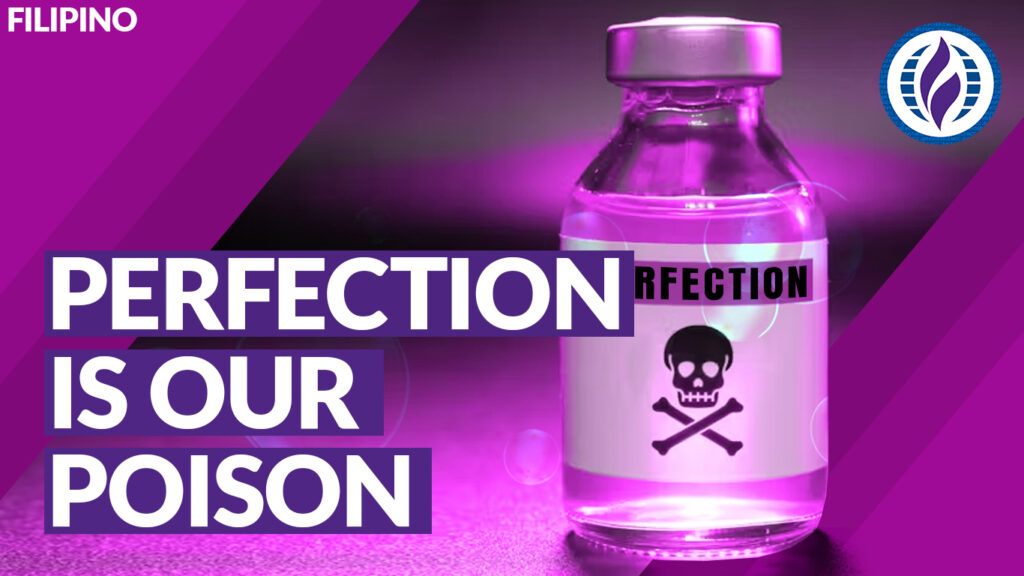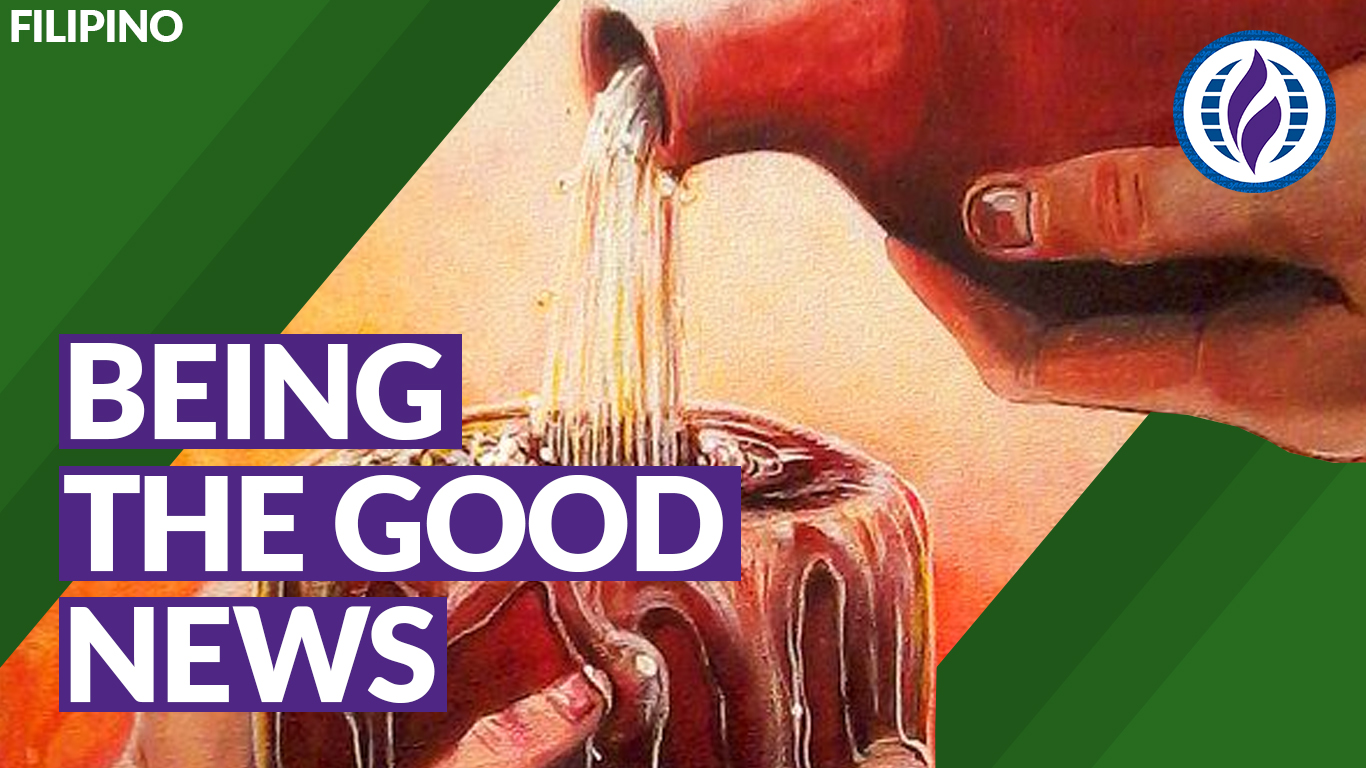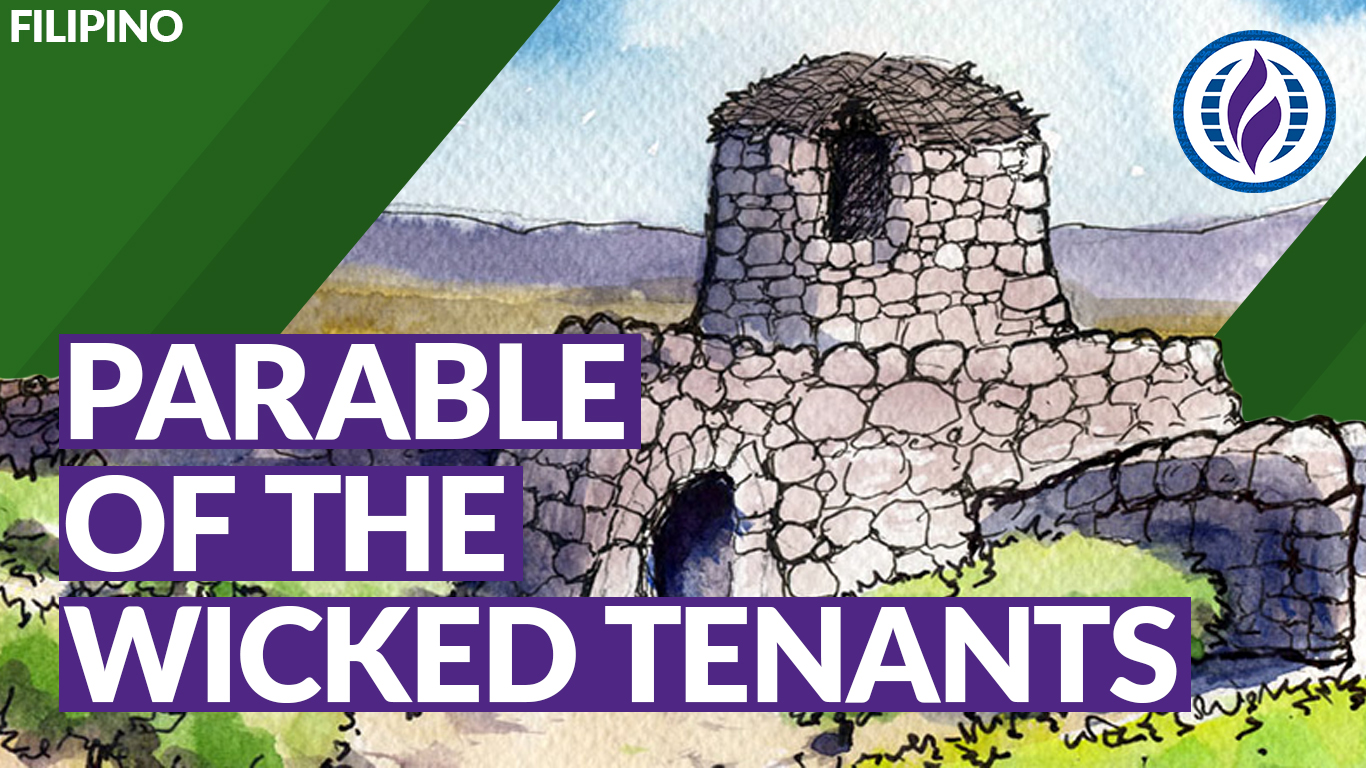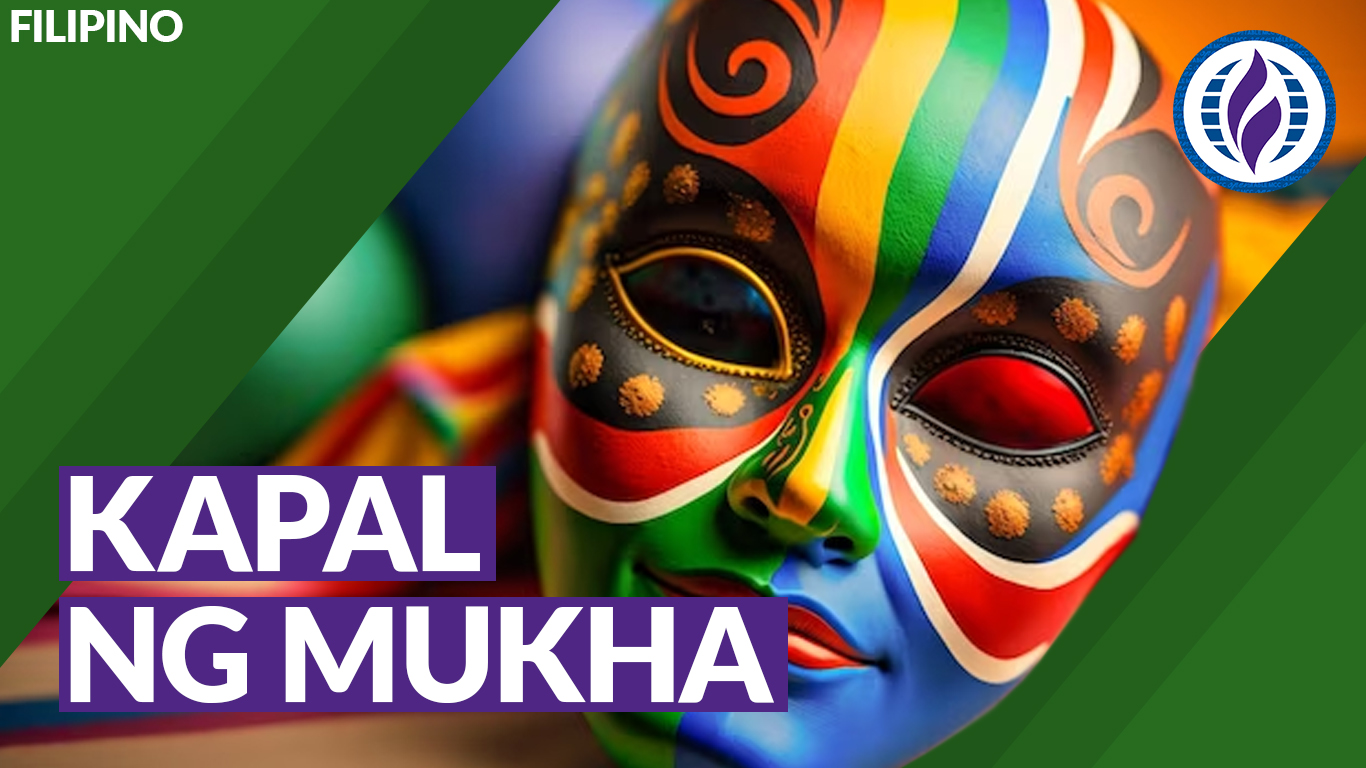He also told this parable to some who trusted in themselves that they were righteous and regarded others with contempt: “Two men went up to the temple to pray, one a Pharisee and the other a tax collector. The Pharisee, standing by himself, was praying thus, ‘God, I thank you that I am not like other people: thieves, rogues, adulterers, or even like this tax collector. I fast twice a week; I give a tenth of all my income.’ But the tax collector, standing far off, would not even lift up his eyes to heaven, but was beating his breast and saying, ‘God, be merciful to me, a sinner!’ I tell you, this man went down to his home justified rather than the other; for all who exalt themselves will be humbled, but all who humble themselves will be exalted.”
Scripture Reading
Luke 18:9–14 (NRSV)
Have you ever thought of yourself as someone better than someone else? Minsan mo na bang naisip na mas magaling at mas matalino ka than your sibling, coworker, or even churchmate? Minsan niyo na rin bang naisip na mas matalino, mas maganda, o mas magaling ka kaysa sa jowa mo?
Lahat tayo ay nakapag-isip na ng ganyan. Nakapag-isip na tayo at one point that we feel or think that we’re better than someone else. At baka nga mas madalas natin ‘yang iniisip nang hindi natin napapansin. And some of our attitudes and behaviors come from this way of thinking.
Now, according to the article of Sharon Martin from the website, Psych Central, a website for psychology, and I quote, “The root of perfectionism is believing that your self-worth is based on your achievements.”
A lot of high achievers and successful people have a tendency for perfectionist attitudes and behaviors. Or ‘yong high and rigid standards. Maraming leaders, tendency ‘yan. Kahit saang larangan. But there are also those we call as toxic perfectionists, where nothing you will ever give or do will ever be satisfactory.
We see some caricatures of these in movies like “The Devil Wears Prada,” by the character of Miranda Priestly, na bet na bet ng mga bakla na ini-imbibe sa kanilang mga sarili. Pero sa totoo naman, hindi naman maganda. O ‘yong prequel ng story ni Cruella de Vil na “Cruella.” ‘Yong perfectionism ng kanyang nanay, ‘yong sobrang taas, sobrang ganda, at sobrang galing ang tingin mo sa sarili mo, everyone else ay chaka, mababa, at loser.
There’s no distinction between you as a human being and the success you have achieved, or imagined having achieved. Achievement feeds and hardens perfectionism. Ang problema, merong mga taong perfectionists at napakataas ng tingin sa sarili, pero in truth, hindi naman talaga.
In the article, “What Causes Perfectionism?” Sharon Martin continues by saying: “Perfectionism is encouraged in some families. Sometimes parents knowingly or unknowingly establish perfection as the standard. These parents require straight As in school, or flawless piano recitals. Mistakes are also harshly punished in these families. The punishment may be severe, even abusive. This can include name-calling, yelling, shaming, the silent treatment, and physical punishment. It is conveyed to the child, in words or actions, that mistakes or failure will not be tolerated.”
This is, of course, common experience nating mga LGBTQIA+. We excel academically and in other extracurricular activities to compensate for our sexuality or gender identity. Sometimes, it is also the way we try to evade or soften the homophobia or transphobia in our families. Siguro, mas matatanggap nila ako kung honor ako sa school at kung marami akong awards.
Minsan naman, ito ‘yong means ng ilan sa atin sa LGBT+ community para bumangon at magpursige na may pangako sa sarili na “bukas, luluhod ang mga tala”, o kaya “bukas, dudurugin ko kayo.”
But, of course, this is not only true for LGBTQIA+ people. Kahit may privilege ang mga cis hetero people, some of them equally experience unfair standards and stereotyping expected of a straight man or a straight woman. Panganay na lalaki ka, dapat magaling, madiskarte, at matalino. Hindi ka dapat weak para mag-provide sa ‘yong magiging asawa at pamilya someday.
But if we are not careful, our own success, independence, or even wokeness – or our own excellence can be cataracts that blind us. Our own self-image can become poison to our life, can become fatal to our faith, and can become toxic to our relationships. And we’re not even aware of it.
A commitment to excellence is good, and everything should always be committed to do and give their best no matter what challenges or struggles that may come, and no matter what career, craft, field, or endeavor.
It’s okay to be committed to excellence, to striving. And many ancient philosophers din naman – both east and west – ay maraming chika tungkol sa struggling and commitment to excellence of anything that you will do. Tama at nararapat magpagaling at magpaka-excel. Maikli masyado ang buhay para sayangin ito on mediocrity.
The problem is not excellence. The problem of perfectionism is the attitude that we think and feel – whether we are aware of it or unaware – that we are above others and others are below us. At dahil ‘yon ‘yong thinking natin, then we set unfair or uninformed expectations and judgements on others.
I think (and let me propose) that perfectionism comes from this internalized idea that you are above someone else, and therefore you impose your perfectionism or high and rigid standard towards others, and even towards yourself.
In our reading today from the Gospel of Luke, Jesus tells us a parable. It’s about someone who thinks too highly of himself and his self-image, and his self-image rests upon the faults and the sins of others.
Nagdadasal siya: “Panginoon salamat at hindi ako tulad ng ibang tao! Salamat at hindi ako magnanakaw. Hindi ako cheater or adulterer. Hindi ako taong tampalasan. At lalong hindi ako tulad nitong tax collector na ito. Ako ay nag-fa-fasting, dalawang beses sa isang linggo at nagbibigay ako ng ten percent gross income computation.”
So hindi lang problema na mataas ang tingin niya sa sarili niya. Ang kataasan ng imagination niya ay nakatungtong sa tingin niyang pagiging mababa or chaka no’ng kaniyang kapwa.
Wala siya actually sinabing mali, and most do’n sa kaniyang dasal. Tama naman. Hindi dapat magnakaw. Hindi dapat bumoto ng pamilya ng mga magnanakaw. Hindi dapat manloko ng kapwa or commit cheating sa isang relationship (maski pa sa open relationship.)
Tama at tunay naman na dapat maging mabuting tao sa lahat ng oras lugar at panahon. Tama naman, dapat woke tayo sa maraming mga iba’t-ibang isyu ng lipunan at mundo. Tama na mayro’n tayong ethical commitments na pinaninindigan at tinitindigan. Pero hindi dapat ito nakatungtong sa kasamaan o pagkakamali ng iba. Hindi dapat nito sinisilip ang bawat kilos or hindi pagkilos no’ng kapwa para lang masabi na “Hoy, ako ay magaling. Kasi siya ay hindi magaling.”
Mabuti ka kasi mabuti ka. At kung tunay na mabuti ka, hindi ito kailangan pang i-mention kay Lord and sa others.
Goodness, beauty, excellence – like truth – has a way of speaking and revealing itself. They shine by themselves without resentment nor arrogance.
Beh, masyado kang mapagmataas. Masyado ka nang perfect. We have to be careful that simply because we consider ourselves as good – and perhaps totoo naman – that we are doing good. But you have to be careful not to look down on others who do not believe, think, or do the things the way that you do. Worse, you must be careful not to demonize or dehumanize others, even if by every standard, the other person or other group of people are indeed committing sin. After all, no matter how good we are, how good you are, and how much good you are doing, no one can ever be perfectly good. No one is so intelligent or excellent that they do not need others to learn, to grow, or to succeed.
In the Gospel of Mark, and then later, in the Gospel of Matthew, Jesus asked the question: who is good but God?
Self-righteousness or self greatness is the other name for perfectionism or the basis of perfectionism. And everyone has a tendency for it.
Both the pink-lawans and the pulawans think that they are above each other. Both religious conservatives and progressives think that they are above and over the other. Gen-Z’s, millennials, and boomers – all of them think that they know better and are above the other generation.
Even if we are truly woke, good, and have impeccable character, perfectionism expressed in self-righteousness poisons our heart and our souls. It also becomes catarcts that blinds us from our own flaws and areas of our own characters that we need to also address, confess, and transform.
To be extreme about it – when the Marcoses genuinely confesses their sins, and the sins of their family, with such remorse and guilt, and therefore willingness to correct the mistakes of the past, they would be better and justified and redeemed, than any pink-lawan who thinks that they are still way better and above. A truly repentant Duterte will be made right and redeemed, than for any activist who will continue to see themselves above others. A repentant conservative Christian, willing to listen and to talk, will be far better in the eyes of God than a progressive queer Christian unwilling to forgive and extend reconciliation.
Do not let your woke-ness, be in itself, a sinful attitude.
Lest I be misunderstood and intentionally misquoted by malicious individuals. I’m not justifying BBM or Duterte, or anyone else, or the pulawans. I’m not justifying mediocrity in our careers, relationships, crafts or in this church community. I’m not justifying ‘yong idea na “puwede na.” I’m not justifying intentionally committing hurtful behaviors and actions, then excusing them because imperfect naman tayo lahat.
We must continue to be good and to do good to everyone. We must continue to be woke, at magpatuloy sa pagmumulat at pagpapanday ng sarili at ng iba.
What I’m saying for today’s first Lenten lesson are two things.
Number one: do not think that you are above others or that you are already okay by virtue of your own goodness or success. And do not let your goodness stand upon the flaws of others. Wag mong masyadong silipin ang iba at gamitin ang ka-chakahan nila para pagandahin ka.
Number two: Leave room for grace, for those who are most difficult to love or care for. There is grace for you and there’s also grace for others.
The most difficult and radical thing about Christianity is that there is grace, even for someone like Hitler. No one is outside of God’s grace.
Brené Brown tells us from her book, “Belonging” (in paraphrase) – Let us resist that tendency to dehumanize those who are polar opposites to us. Even if they are doing exactly that to us and to others. Do not demonize and dehumanize those who dehumanize you. Do not become that which you are fighting against.
Who is good, but God? Who is perfect, but the Lord alone?
No one among us must think too highly of themselves. No one must see their own goodness or woke-ness as better or above. No one must use the flaws, failures, and even the sins of others, as stepping stones to rise higher.
No one is more spiritual or more holy than anyone els,e even if it is true that you are spiritual or holy. The grace of God is given to all, and the gifts of the Holy Spirit are given to each according to the purpose of ministry or calling, inside and outside the church.
The ground where we all stand is flat. All of us are flawed and continually need of God’s grace, and the grace of one another. We are all flawed. Lahat tayo ay may imperfection. Lahat tayo, may ka-chakahan. Kasi kung perfect ka na pala, hindi mo na kailangan ng Diyos, simbahan, o iba pang tao. Tumira ka sa liblib na kuweba o kaya sa isang isla. Mag-isa at doon mo mag-isang purihin ang sarili mo.
Perfectionism poisons our hearts and souls. It poisons our faith, ministry, and advocacy. Perfectionism poisons our faith, ministry, and advocacy. We must excel and achieve. But we must do so in and with God’s grace. With a little room for failures and mistakes. Because only through failures, sins, and mistakes that we genuinely grow into the maturity and spirituality of God’s love. God’s love that is both gentle and firm.
Amen.
Podcast: Play in new window | Download
Subscribe: Apple Podcasts | Spotify | RSS



